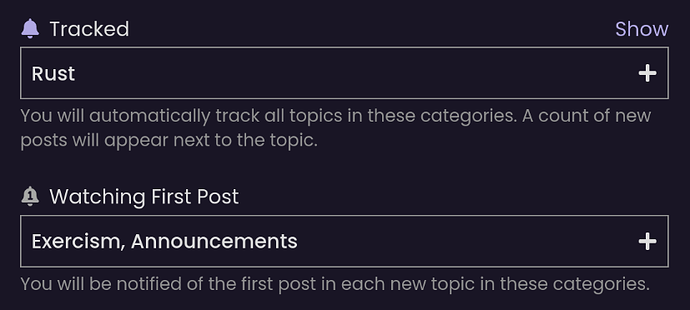Hello fellow Rustaceans!
Recent developments
In the last couple of days, several PRs were merged on the Rust track. Most notably, there is a new exercise generator based on tera templates which allows flexible (re-)generation of tests based on problem-specifications. The goal is to stay up to date with problem-specifications without much effort. Applying this generator to all exercises derived from problem-specifications is my next task.
A big thank you to @AurelienFT, who has done some great work on the Rust representer, bringing it inline with the spec such that it actually starts working! And indeed, it looks like we can now give feedback on representations!
Mentors, I need your help
I’ve started contributing to Exercism by doing lots of mentoring. During that time, I had many ideas about how to improve the track, based on what students were struggling with. Now that all of the time I can dedicate to Exercism is spent on maintenance, I don’t have that input anymore.
Mentors, that’s were I need your help. Please don’t hesitate to post any ideas you have on the forum. I don’t need you to do the work, though you can if you want to. I’m happy to do the work myself as time allows. I just need your ideas. You can comment ideas you already have in this post, but also feel free to create new posts with ideas in the future.
I’m going to be a bit rude and individually tag a couple recently active mentors, because you may not receive notifications on this topic. (Some of them I can’t even tag, presumably because they never joined the forum ![]() )
)
@bobahop @deleted-user-33691 @victorprokhorov @maugier
Apologies for any inconvenience, I won’t tag individuals in the future. Consider activating notifications for this topic if you would like to stay in touch. I’d love some active communication between maintainers and mentors. Here’s what I suggest:
Go to https://forum.exercism.org/u/<YOUR_USER_TAG>/preferences/tracking
Add the Rust topic to either “Tracked” or “Watching First Post”, according to your preference:
(also make sure you get emails for forum notifications)
Not all post will be relevant to mentors, but right now it’s very calm. If the topic somehow becomes spammy from the perspective of mentors, let me know and we’ll find a solution.
Existing ideas for improvements
Now that I’m asking for your ideas, I should mention those that are already planned / on my mind.
I want to integrate clippy (and rustfmt?) in the analyzer. That should be an easy way to generate high-quality feedback for all exercises. I also remember posting my snippet about clippy in many mentoring sessions. I think that’ll be my focus after bringing the track inline with problem-specifications.
The syllabus, the elephant in the house. I don’t want to do that myself at the moment. I don’t see myself as a creative exercise writer and educator, more like a janitor that makes sure everything is up to date and working. Maybe in the future, when I’m done mopping the floor. However, I’m always open to supporting anyone who wants to work on this, on the condition that we can first agree on a mode of cooperation which is enjoyable for everyone.
I’m looking forward to making the Rust track as good as it can be together with you! ![]()
